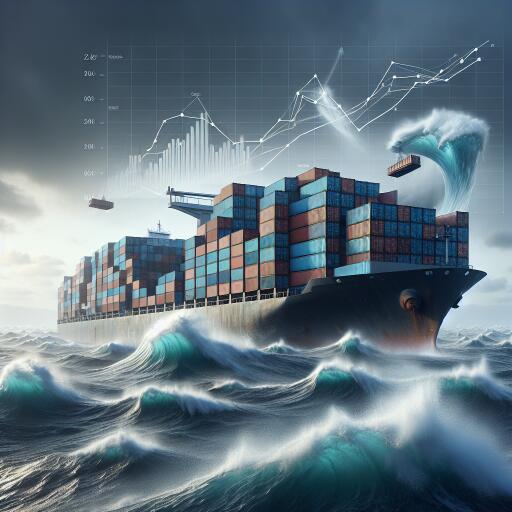
BTJ 2/24 – LEGAL: High waves, high claims. New study on container losses
In an era where climate change is making its presence felt across the globe, the maritime industry faces its own set of weather-related challenges. Among these, the issue of container stack collapses stands out as a significant concern for shipping companies, insurers, and environmentalists alike. A groundbreaking new study sheds light on how weather patterns, particularly high waves, contribute to these incidents, opening up conversations on how to better protect our oceans and the cargo that sails across them.
The research presents an in-depth analysis of how increasing wave heights contribute to the risk of container losses at sea. It’s no secret that the oceans’ behavior has become more unpredictable and extreme due to climate change, with high waves becoming more frequent. This study quantitatively assesses the risk, providing a detailed look at how high waves are directly linked to the likelihood of container stack collapses. The findings are a wake-up call, highlighting an urgent need for the shipping industry to adapt its practices and strategies.
Furthermore, the study reveals considerable variances in weather exposure among different shipping operators. This discrepancy suggests that some fleets are more vulnerable to severe weather conditions than others, based on their operational routes and the design of their vessels. Such insights are invaluable, not only for shipping companies themselves as they assess and mitigate risks but also for policymakers and environmental advocates looking to enhance maritime safety and sustainability.
The implications of this research are far-reaching. By understanding the specific risks associated with high waves and extreme weather, the maritime industry can take proactive steps towards improving container safety. This might include investing in more robust container securing equipment, reevaluating shipping routes based on historical weather data, and incorporating more resilient designs in new vessels. Additionally, it sets a foundation for more informed discussions within the industry about collective actions and regulations that could mitigate the risks of container stack collapses.
As conversations around climate change continue to evolve, this study serves as a reminder of the need for ongoing dialogue and action within the maritime sector. It’s not just about safeguarding the cargo or the bottom line; it’s about protecting the marine environment and ensuring the safety of crew members aboard these vessels. The findings from this comprehensive study have the potential to catalyze significant changes in how the industry approaches the challenge of adverse weather conditions, ultimately contributing to a safer, more resilient maritime trade network.
In conclusion, the impact of weather on container stack collapses is a multifaceted issue that requires a multifaceted response. Through continued research, collaboration, and innovation, the maritime industry can address the challenges posed by high waves and other weather-related risks. This study marks an important step forward in recognizing and responding to these challenges, hopefully paving the way for a future where severe weather does not spell disaster for ships at sea.





Leave a Reply